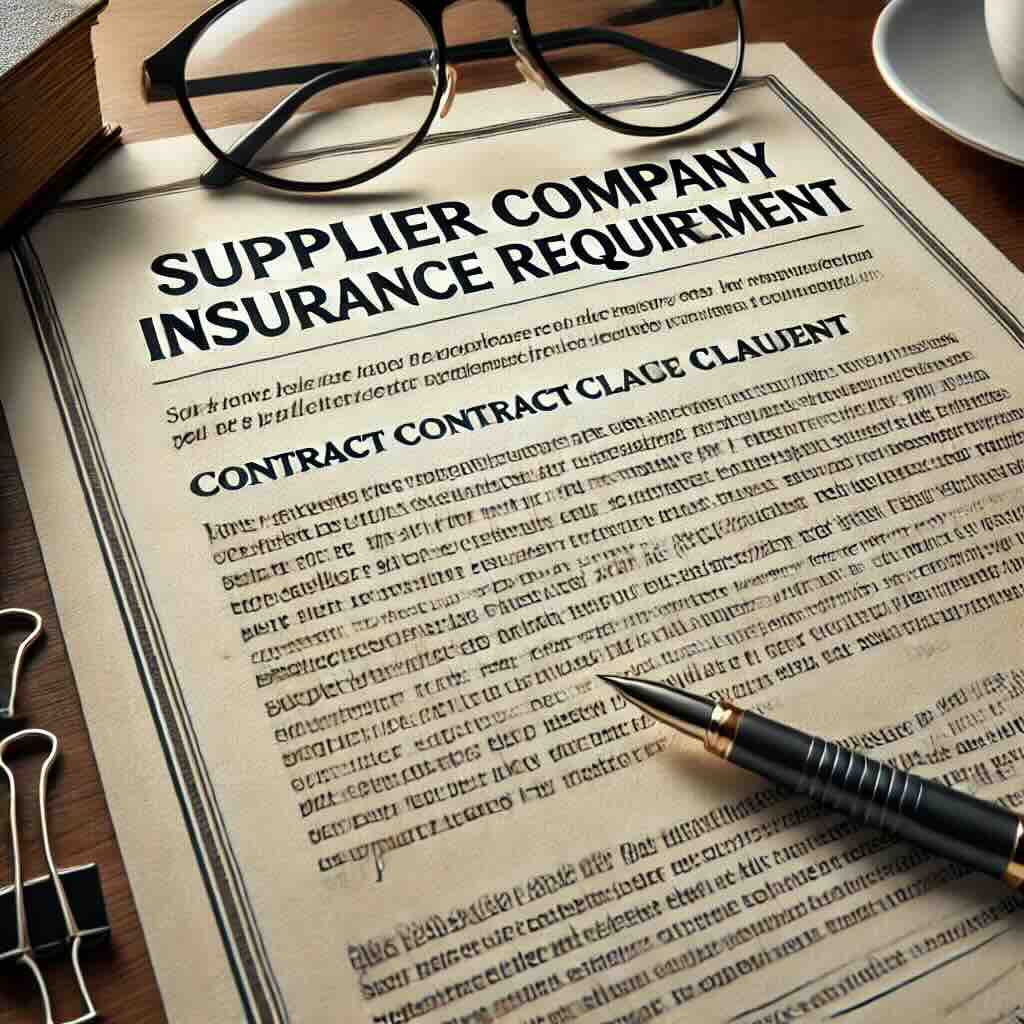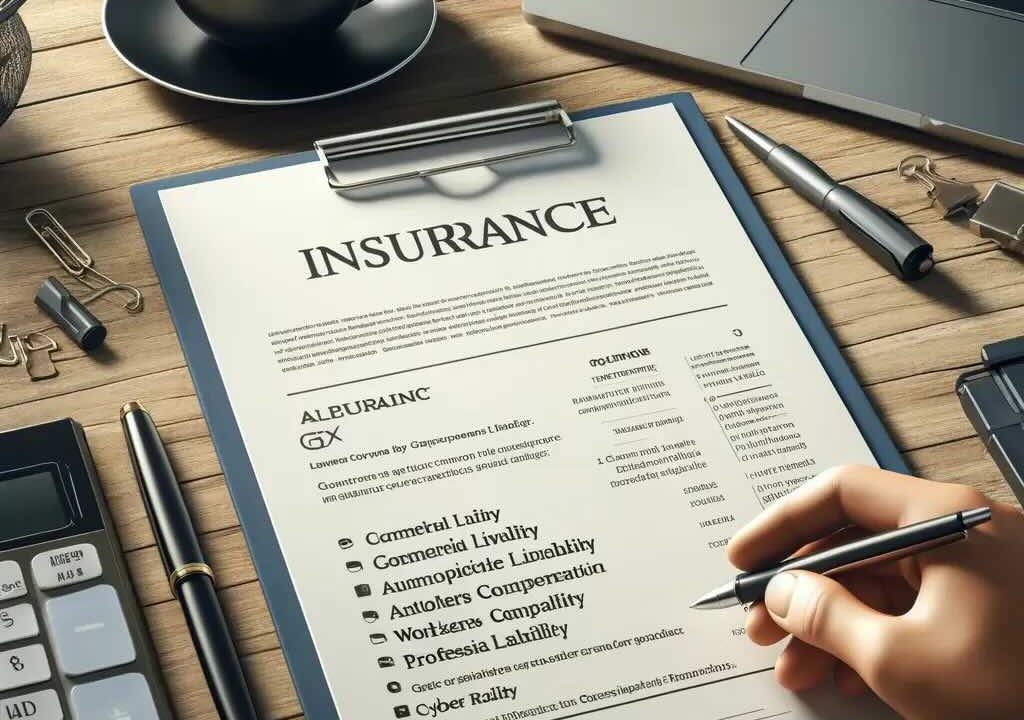When building your supply chain, supplier insurance in contracts is a crucial element that helps to mitigate the risks associated with working with external vendors. Supplier insurance is a contractual agreement between a buyer and a supplier that protects both parties in the event of loss or damage caused by the supplier. This type of insurance is designed to provide financial protection to the buyer in the event that the supplier fails to deliver on their contractual obligations.
Table of Contents
Purpose of Supplier Insurance in Contracts
The purpose of supplier insurance in contracts is to provide financial protection and mitigate risk for both the buyer and the supplier. Some of the key purposes of supplier insurance include:
Protection against losses: Supplier insurance provides financial protection to the buyer in the event of losses or damages caused by the supplier. This can help to mitigate the risk of working with external vendors and provide peace of mind to the buyer.
Compliance with regulations: Supplier insurance can help to ensure that both the buyer and the supplier are compliant with industry regulations. This can help to avoid potential legal issues and penalties associated with non-compliance.
Demonstrating commitment: By requiring suppliers to have insurance coverage, buyers can demonstrate their commitment to working with reliable and responsible vendors. This can help to build trust and strengthen relationships with suppliers over time.
Minimizing disruptions: In the event of a breach of contract or other issues, supplier insurance can help to minimize disruptions to the buyer’s operations. By providing financial protection, buyers can avoid potential delays or interruptions caused by supplier issues.
Example clause: Supplier insurance in contracts
Supplier Insurance Requirements
1. Insurance Coverage: The Supplier shall, at its own expense, procure and maintain in full force and effect, for the duration of this Agreement, insurance coverage of the types and in the amounts specified below. Such insurance shall be obtained from reputable and financially sound insurance companies acceptable to the Buyer.
2. Types and Amounts of Insurance:
- Commercial General Liability Insurance: Including coverage for bodily injury, personal injury, property damage, contractual liability, and products/completed operations, with a minimum limit of [Insert Amount] per occurrence and [Insert Amount] in the aggregate.
- Automobile Liability Insurance: Covering all owned, hired, and non-owned vehicles, with a minimum combined single limit of [Insert Amount] per accident for bodily injury and property damage.
- Workers’ Compensation Insurance: In accordance with statutory requirements of the jurisdiction(s) in which the work is performed and Employer’s Liability Insurance with a minimum limit of [Insert Amount] per occurrence.
- Professional Liability Insurance (if applicable): Covering errors and omissions arising out of the Supplier’s professional services, with a minimum limit of [Insert Amount] per claim and in the aggregate.
- Cyber Liability Insurance (if applicable): Including coverage for data breaches, privacy violations, and network security failures, with a minimum limit of [Insert Amount] per claim and in the aggregate.
3. Additional Insured and Waiver of Subrogation: The Buyer, its affiliates, directors, officers, employees, and agents shall be named as additional insureds under the Supplier’s Commercial General Liability and Automobile Liability insurance policies. All insurance policies shall include a waiver of subrogation in favor of the Buyer.
4. Evidence of Insurance: The Supplier shall provide the Purchaser with certificates of insurance evidencing the required coverage prior to the commencement of any work under this Agreement and upon renewal or replacement of each policy. Each certificate shall state that coverage will not be canceled, non-renewed, or materially changed without at least [Insert Number] days’ prior written notice to the Purchaser.
5. Subcontractors: The Supplier shall ensure that all subcontractors engaged in the performance of this Agreement maintain insurance coverage of the types and in the amounts required herein. The Supplier shall provide evidence of such insurance upon request by the Buyer.
6. Failure to Maintain Insurance: If the Supplier fails to procure or maintain the required insurance, the Buyer shall have the right, but not the obligation, to procure such insurance at the Supplier’s expense or to terminate this Agreement for cause.
7. Indemnification: The Supplier’s obligation to indemnify the Buyer shall not be limited to the insurance coverage required herein.
This clause is an exampled on howt the Supplier can be adequately insured, protecting the Buyer interests, and provides recourse if the Supplier fails to maintain the necessary insurance. Adjust the amounts and specific coverage types based on the particular needs of your organization and the nature of the contract. Always consult an expert before determining your own clause.
Determining value in Supplier insurance in contracts
When defining the amount for supplier insurance, several critical factors need to be considered to ensure adequate protection for both the procuring organization and the supplier. Here are the key considerations:
- Nature of Goods or Services:
- Evaluate the specific goods or services the supplier will provide. High-risk activities, such as construction or manufacturing, typically require higher insurance limits compared to low-risk services like consulting.
- Contract Value:
- The total value of the contract can influence the insurance amount. Higher-value contracts generally necessitate higher insurance limits to cover potential liabilities.
- Industry Standards:
- Review industry norms and standards for insurance coverage. Certain industries have typical benchmarks for insurance amounts that can guide your requirements.
- Risk Exposure:
- Assess the potential risks involved with the supplier’s activities, including bodily injury, property damage, professional errors, cyber threats, and other liabilities. Higher risk levels often require higher insurance coverage.
- Regulatory Requirements:
- Ensure compliance with local, state, and federal regulations that may dictate minimum insurance requirements for specific types of contracts or services.
- Company Policy:
- Align the insurance requirements with your company’s internal risk management policies and insurance standards.
- Historical Claims Data:
- Consider past claims data or incidents related to similar suppliers or projects to gauge appropriate insurance limits.
- Geographic Location:
- The location of the supplier’s operations and where the goods or services will be delivered can influence insurance needs. Different regions may have varying legal and environmental risks.
- Customer and Stakeholder Expectations:
- Take into account any requirements or expectations from customers, partners, or stakeholders who may be affected by the supplier’s performance and insurance coverage.
- Financial Stability of the Supplier:
- Evaluate the financial health of the supplier. Smaller or financially unstable suppliers may struggle to maintain high insurance limits, requiring a balance between adequate protection and realistic demands.
- Potential Liability and Damages:
- Estimate the maximum potential liability and damages that could arise from the supplier’s failure or misconduct. Ensure the insurance amount is sufficient to cover worst-case scenarios.
- Duration of the Contract:
- The length of the contract can impact the insurance requirements. Long-term contracts might necessitate sustained insurance coverage over a longer period.
- Subcontractor Coverage:
- If the supplier uses subcontractors, ensure that the insurance coverage extends to subcontractor activities or that subcontractors are required to maintain their own insurance.
Summary: Supplier insurance in contracts

In conclusion, supplier insurance is an important element of procurement contracts that helps to mitigate risk and provide financial protection to both the buyer and the supplier. By requiring suppliers to have insurance coverage, buyers can ensure compliance with regulations, minimize disruptions, and demonstrate their commitment to working with reliable and responsible vendors. As such, supplier insurance should be an essential consideration for any procurement professional when evaluating potential suppliers.
Learn more about General Terms and Conditions.
Note: Illustration to the blogpost “Supplier insurance in contracts” was created by Chat GPT on June 9, 2024.
Learn more about online procurement courses at Utbildning Inköp (in Swedish).
